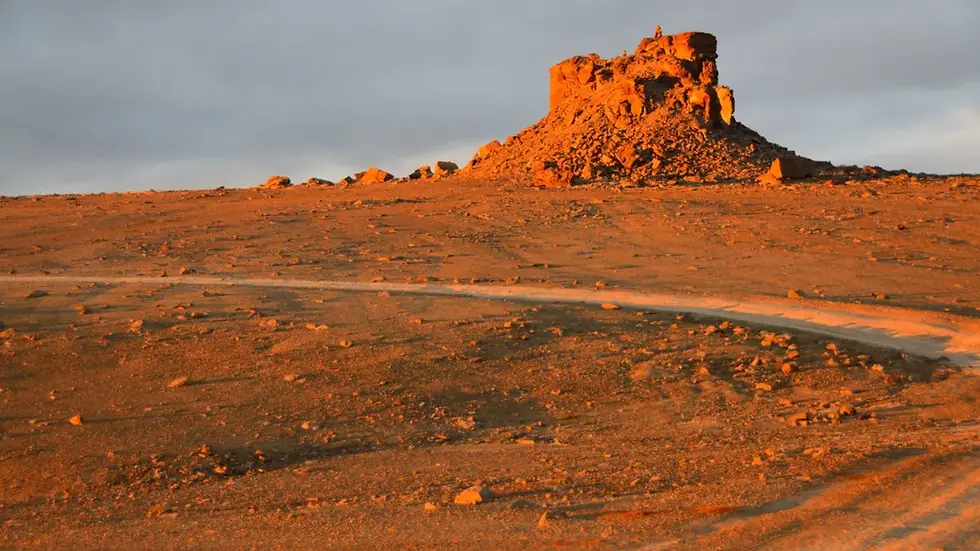A Month on 'Mars': Return to Earth
- Pegasus Aerospace system
- Sep 18, 2022
- 2 min read

We're back in southern climes, and our month on "Mars" is already a dream, a muse, a fading memory.
The Haughton-Mars Project on Devon Island is a place where we are reminded of our frantic and violently shifting past, and one possible future. It's a realm of vast, barren, forbidding landscapes; layered with dust and grit, with rocks and formations uniformly sharp enough to cut skin. Yet the vistas are, from a distance, of soft rolling plains, punctuated with abrupt gullies, buttes, and low hills. The valleys wind sinuously from nowhere to nowhere, with occasional captured pools of crystal-clear meltwater throughout.
It is predominantly red in hue, with features carved eons ago by magnificent but vanished glaciers and continually polished by scouring, grit-filled, violent winds. And despite all the dangers of its rugged surface, it's inhabited by magic.
Already, that striking island is receding into a softer, almost sensual memory. Yet specific impressions remain, as sharp as the ancient reefs that permeate the landscape. Wherever you look, the vista teases you with false promises of both nearness and far-off features; navigating distance by eye is impossible, as there are no objects familiar to a city dweller such as myself. No trees, no bushes, no power lines, no buildings, no nothing. That valley to the left might be two miles away or merely a few hundred yards distant, and the magnificent boulder sitting in the middle of that plain could be ten feet tall or three times that.
And at this, the mind rebels. Lateral visual estimates may be inaccurate, but this is not particularly disturbing. But the wildly erroneous impressions of z-axis distance — that is, distance from yourself to another object — agitate the primitive brain after a time. That hike you thought to be long and challenging ends up being just a mildly exerting stroll, and when you arrive at your destination, the reptilian brain calls out, "Wait up! This isn't right!" The visual physics of the place challenge the ancient hunter-gatherer in us, telling us to be cautious, be careful, and step warily. Nothing is quite as it seems here, and that awakens the caution in the irrational mind.
As we counted down the days to the large weather front that was supposed to go blasting past us in our final week, each of us had lots to do to shut down the camp for another year. We went about our chores, looking at the sky a few times per hour to see what might be coming. But despite some heavy clouds and biting winds, the weather stayed fairly mild (by arctic standards, anyway). Planes still were not flying, but where we were, conditions were moderate.







Comments